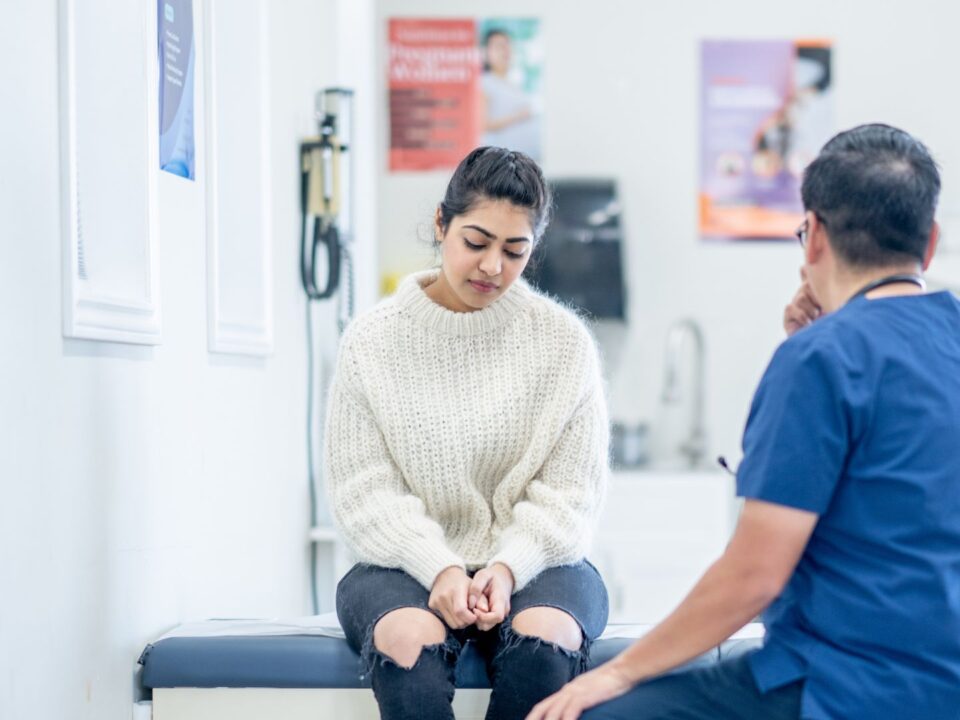
What Happens After I Complete Residential Mental Health Treatment in Indianapolis?
February 7, 2025
Mental Health Matters: Tailored Services for Union Employees in Gary, Bloomfield, Dyer, and Hobart
February 14, 2025Many people in Indianapolis are searching for help with mental health issues. They may feel sad, anxious, or have trouble handling day-to-day life. In Indianapolis, there are places where people can go to live and get help for these problems.
One key fact is that centers in this city treat many kinds of mental health disorders. These include depression, anxiety, and more serious conditions like schizophrenia.
Our blog will show what disorders these residential mental health facilities Indiana deal with and how they help. It gives info on treatments available. Keep reading to learn more!
Key Takeaways
- Indianapolis has facilities that treat various mental health disorders like depression, anxiety, bipolar disorder, schizophrenia, borderline personality disorder, and substance use disorders.
- Treatments offered include counseling, medication management, dual diagnosis treatment for those with both mental health and substance issues, intensive outpatient programs, and long-term care.
- Facilities use different therapies such as cognitive behavioral therapy (CBT), dialectical behavior therapy (DBT), electroconvulsive therapy (ECT), and holistic approaches like equine therapy and yoga to support recovery.
- To choose the right facility in Indianapolis, check its certification, match services to needs, and understand insurance coverage and costs.
- Specialized treatments in these centers focus on personalized care plans aiming for long-term improvement in patients’ mental well-being.
Overview of Residential Mental Health Treatment in Indianapolis
In Indianapolis, you’ll find various residential mental health Indianapolis facilities offering a range of services. These include inpatient programs, long-term care, and specialized treatments for adults and children struggling with mental health disorders.
The facilities in Indianapolis also provide outpatient mental health treatment options to cater to diverse needs within the community.
General services provided
Residential mental health facilities in Indianapolis offer a wide range of services. First City Mental Health Center provides open residential programming and diagnostic evaluation.
They provide round-the-clock nursing care and help with psychiatric stability. Focuses on treating both mental health issues and substance use by offering individual and family therapy five times a week. These centers support people with different needs through programs like psychiatric stabilization, dual diagnosis treatment, individual therapy, family therapy, and more.
Each facility comes equipped to handle complex conditions to improve patients’ lives through structured treatment plans. Patients get access to skilled professionals who guide them through each step of their recovery process, from initial assessment to developing coping mechanisms via therapy sessions or medication management if needed.
The goal is clear: To ensure every person receives personalized care that addresses their unique challenges in a supportive environment.
Common Mental Health Disorders Treated
Residential mental health facilities in Indianapolis provide mental health treatment for a variety of common mental health disorders, such as depression, anxiety disorders, bipolar disorder, schizophrenia, borderline personality disorder, and substance use disorders.
Each of these conditions necessitates specialized care and support customized to the individual’s needs.
Depression
Depression is a serious mood disorder. It affects how you feel, think, and handle daily activities. Many facilities in Indianapolis treat depression. They use counseling and antidepressant medication. These centers aim to help patients get better through therapy and support.
Anxiety Disorders
Residential mental health facilities in Indianapolis cater to a wide range of anxiety disorders, offering specific therapies and treatments aimed at managing symptoms. These treatments include psychotherapy for anxiety management and cognitive behavioral therapy to help individuals effectively cope with anxiety symptoms.
In addition, these facilities provide specialized behavioral health services tailored to the needs of individuals seeking support programs and treatment for anxiety.
Bipolar Disorder
Bipolar disorder, also known as manic depression, is a mental illness characterized by extreme mood swings. People with bipolar disorder experience depressive episodes and hypomania or full-blown mania.
It’s a psychiatric disorder that requires specialized treatment and medication to stabilize moods. The FCMHC is one facility in Indianapolis that focuses on providing comprehensive care for individuals with bipolar disorder, offering personalized psychiatric treatments to address its complexities.
It’s vital to understand that bipolar disorder affects millions of people globally and requires unique approaches for effective management. Medication, therapy, and continuous support are crucial in the journey towards stability for individuals living with this condition.
Schizophrenia
Transitioning from the discussion of bipolar disorder, we move to schizophrenia. This mental health condition usually starts in early adulthood and affects how a person thinks, feels, and behaves.
It involves symptoms like hallucinations (seeing or hearing things that aren’t there) and delusions (false beliefs). Treatment often includes antipsychotic medication, cognitive behavioral therapy, psychoeducation, dual diagnosis support for co-occurring disorders, social support systems.
Borderline Personality Disorder
The mental health facilities in Indianapolis offer specialized therapy tailored towards addressing the challenges of BPD symptoms, helping individuals manage their condition effectively.
Moreover, it also offers psychiatric treatment for comorbid mental health disorders often associated with Borderline Personality Disorder. The program aims to enhance the overall well-being of individuals struggling with BPD by integrating personalized therapeutic approaches and techniques into their treatment plans.
Substance Use Disorders
Substance use disorders, such as alcohol and drug addiction, receive treatment in residential mental health facilities. For example, it focuses on addressing substance use disorders, while providing services for drug and alcohol detox and inpatient rehabilitation.
Recovery Center also offers medical detoxification for alcohol and substances. Moreover, specializes in dual diagnosis treatment, which involves addressing substance abuse disorders.
Transitioning from this, we can explore the specialized treatments provided in residential mental health facilities.
Specialized Treatments Offered
Specialized treatments offered include dual diagnosis treatment, intensive outpatient programs and long-term residential care. These options cater to specific needs and provide a comprehensive approach to residential mental health treatment.
Dual Diagnosis Treatment
Dual diagnosis treatment is crucial for individuals dealing with both mental health and substance use disorders at the same time. It involves integrated care that addresses both conditions simultaneously, providing thorough therapy and support.
Centers like us are experts in this approach, guaranteeing that individuals get the personalized behavioral health services required for their psychiatric and addiction treatment.
This treatment for coexisting conditions offers a holistic, all-encompassing care model to handle the challenges of managing both disorders at once, emphasizing the significance of dual diagnosis counseling within constantly changing mental health and substance abuse treatment approaches.
Intensive Outpatient Programs
Transitioning from dual diagnosis treatment, individuals can find structured therapy sessions and comprehensive services tailored to their needs through intensive outpatient programs (IOP).
Individuals can access intensive mental health services, including personalized therapy sessions, aimed at providing more than just standard outpatient care.
These programs provide individuals with specialized addiction treatments, incorporating holistic approaches and integrated care plans aimed at fostering recovery.
The center’s comprehensive outpatient services take a meticulous approach to tackle the unique challenges faced by those dealing with substance use disorders or other mental health conditions.
Long-Term Residential Care
The extended mental health support long-term residential care offers comprehensive behavioral health management. The program’s treatment duration can extend up to 1-2 years, providing prolonged rehabilitation services for individuals in search of more than short-term solutions.
Unique Therapies and Approaches
Explore unique therapies and approaches in residential mental health care facilities. To learn more about these innovative treatment methods, continue reading the blog.
Cognitive Behavioral Therapy (CBT)
CBT is available at the Treatment Center in Indianapolis. CBT is an effective therapy for mental health disorders such as depression, anxiety, and stress management.
It’s customized to unveil the insights of trauma-focused therapy and mindfulness-based treatments.
Dialectical Behavior Therapy (DBT)
Dialectical Behavior Therapy (DBT) is a type of psychotherapy that focuses on mindfulness, emotional regulation, interpersonal effectiveness, and distress tolerance. It’s notably effective in treating borderline personality disorder and has been used for other mental health disorders as well.
as part of their treatment programs alongside cognitive behavioral therapy to help individuals develop coping skills.
Electroconvulsive Therapy (ECT)
Moving on from Dialectical Behavior Therapy, another unique approach is Electroconvulsive Therapy (ECT). ECT involves passing electric currents through the brain to trigger brief seizures.
It’s commonly used to treat severe depression that hasn’t responded to other treatments. While there are concerns about its side effects, such as memory loss and confusion, studies show that it can be very effective for some individuals.
ECT is usually administered under general anesthesia and has shown rapid improvement in symptoms for those with treatment-resistant depression.
Moreover, ECT treatment typically involves a series of sessions over several weeks or months, followed by maintenance treatments to prolong the benefits. Despite misconceptions and stigma surrounding this therapy, research and advancements have significantly improved its safety and effectiveness in treating severe mental health issues.
Holistic and Alternative Therapies
Holistic and alternative therapies play a vital role in mental health treatment. These unique approaches aim to treat the whole person, physically, mentally, and emotionally. Complementary medicine is integrated into their programs to provide mind-body healing for individuals seeking more than just traditional treatments.
The world of mental health care continues to develop with the integration of holistic and alternative therapies such as natural healing practices and wellness approaches crafted to improve overall well-being.
These nontraditional methods are customized to offer a comprehensive healing experience encompassing both physical and emotional aspects.
Navigating Treatment Options
Exploring treatment options can be challenging. Grasping treatment durations, facility criteria, and cost considerations is crucial for making the right decision.
Criteria for choosing the right facility
To choose the best mental health facilities in Indianapolis, verify its certification and licensure from the Indiana Family and Social Services Administration. Research to match specific needs. Consider traveling for treatment to avoid triggers and find higher-quality options.
Understanding treatment durations
When selecting the appropriate mental health facility, it’s vital to comprehend treatment durations. Brief programs typically endure 90 days or less, while extended care can span 1-2 years.
It’s crucial to align the duration with individual needs for successful recovery.
Various disorders may necessitate different therapy durations. For instance, intensive outpatient programs might last a few weeks to several months based on progress and goals, guaranteeing personalized and efficient care.
Insurance and cost considerations
Residential mental health facilities in Indianapolis may accept private or public insurance, offer payment plans, or require self-payment. Costs of treatment vary, and financial aid or assistance could be available to make it more affordable for individuals seeking care.
It’s crucial to inquire about healthcare coverage options and explore any potential financial assistance that can help offset the cost of care at these facilities.
Understanding insurance coverage, payment options, and the overall affordability of treatment is crucial when navigating through different healthcare facilities. Individuals should also consider the intricacies involved in finding the right facility tailored towards their specific needs while considering the associated expenses.
Exploring all these aspects will assist in making informed decisions regarding mental health treatment choices.
Moving forward with a focus on common mental health disorders treated at residential facilities in Indianapolis…
Conclusion
In conclusion, mental health therapists Indianapolis provide a variety of residential mental health facilities tailored to different disorders. Practical and personalized treatments are crafted to improve individuals’ mental well-being.
These approaches have significant potential for long-term impact by effectively addressing intricate mental health issues. For further guidance, individuals can explore other resources customized for their needs and initiate a journey towards improved mental health care.
Let’s recall that it’s crucial to seek more than traditional treatments in this ever-evolving realm of mental health support services.
At First City Mental Health Center, we believe that mental health is just as important as physical health. If you or someone you love needs support, don’t wait—take the first step toward healing today. Contact us to schedule a consultation or learn more about our personalized services. Let’s work together to build a healthier, happier you.
FAQs
What mental health disorders can be treated in residential facilities in Indianapolis?
Residential mental health facilities in Indianapolis treat various disorders. These include depression, anxiety, bipolar disorder, PTSD, and schizophrenia.
How do residential facilities help individuals with these disorders?
These facilities provide structured care and support. They offer therapy sessions, medication management, and group activities to help patients recover.
Who can benefit from treatment at a residential facility?
Individuals struggling with severe symptoms or those who need intensive support may benefit most from treatment at these facilities. This includes people unable to function well in daily life due to their mental health issues.
What is the length of stay in a residential mental health facility?
The length of stay varies based on individual needs and progress. Most stays range from a few weeks to several months as patients work towards recovery goals.






